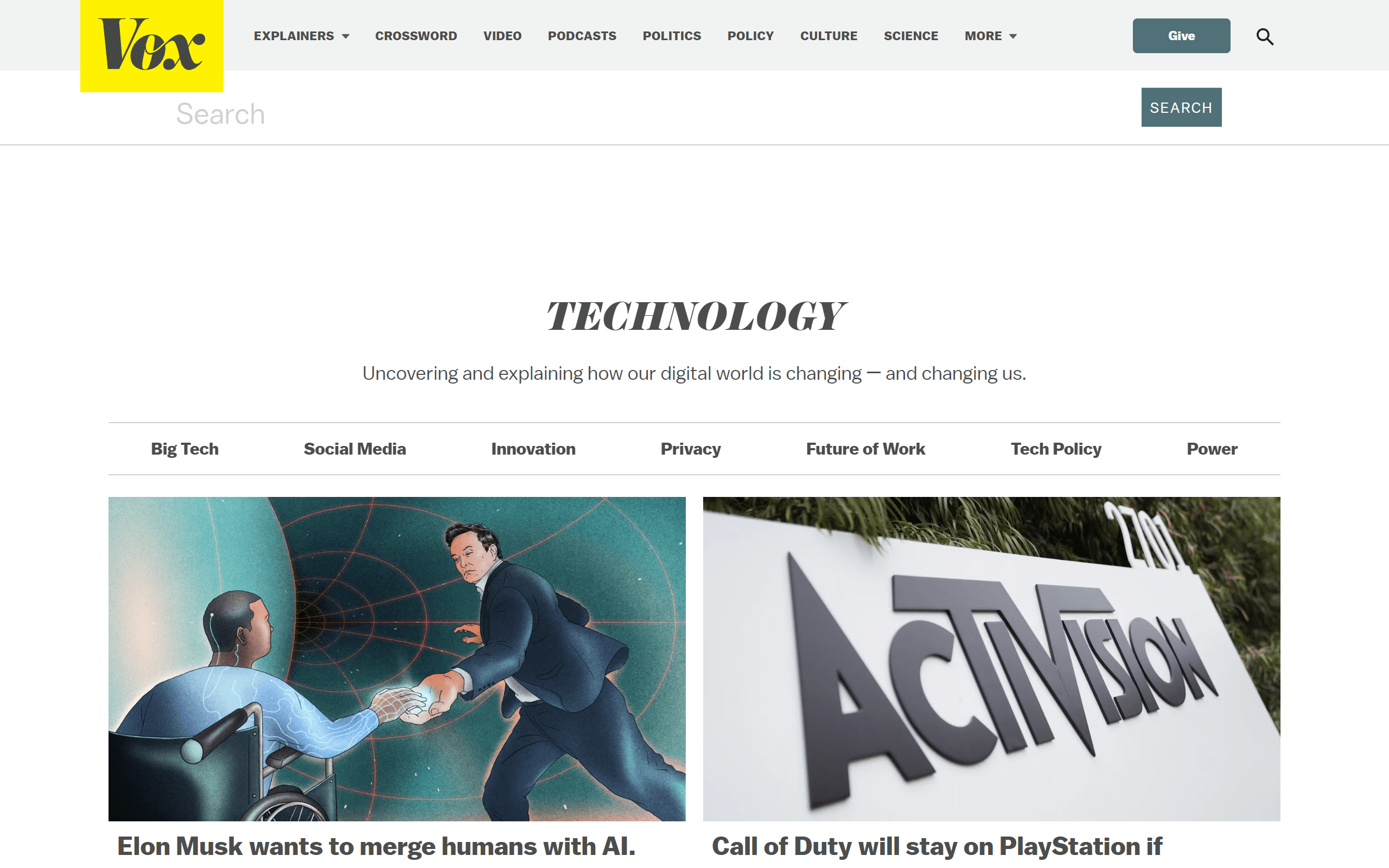What Makes the Best tech blog Stand Out Among Tech Enthusiasts and Specialists
What Makes the Best tech blog Stand Out Among Tech Enthusiasts and Specialists
Blog Article
Just How Blockchain Modern Technology Is Revolutionizing Data Safety And Security
Blockchain technology is fundamentally altering the landscape of information security by introducing a decentralized structure that promises boosted openness and resilience. Unlike traditional systems, which depend on centralized information repositories, blockchain disperses data across a network, lessening vulnerabilities and solitary points of failure. The use of advanced cryptographic techniques makes certain that information continues to be tamper-proof, fostering depend on among stakeholders and users.
The Fundamentals of Blockchain
Blockchain innovation, an innovative concept in digital data administration, fundamentally transforms how info is stored and safeguarded. At its core, a blockchain is a dispersed ledger that tape-records transactions throughout a network of computer systems, making certain transparency and immutability.
Trick to understanding blockchain is the hashing process, which secures deal data into an one-of-a-kind alphanumeric code. This cryptographic function guarantees that any kind of modification in the transaction information results in a totally different hash, consequently securing against tampering. The agreement mechanism, one more crucial element, validates and confirms new transactions via a network of nodes, consequently removing the demand for a central authority.
In addition, blockchain's append-only framework guarantees that information, once included, can not be erased or changed. This characteristic warranties a permanent and proven document of transactions, promoting trust among individuals. Therefore, blockchain gives a robust framework for information stability, supplying markets a trusted technique for monitoring and managing electronic information in a secure, transparent fashion.
Decentralization and Safety And Security
Decentralization, a core concept of blockchain modern technology, substantially boosts information safety and security by distributing control throughout a network as opposed to counting on a singular, centralized entity. This circulation mitigates the threat of single factors of failure, which prevail in traditional central systems. By dispersing data across many nodes, blockchain guarantees that even if one node is jeopardized, the entire network stays safe. This redundancy not just fortifies the integrity of the information however additionally raises its durability to cyberattacks and system failures.

Each participant in the network has accessibility to the whole blockchain, allowing them to confirm and examine transactions separately. Overall, decentralization is instrumental in improving information safety and security in blockchain networks.

Cryptographic Techniques
At the heart of blockchain technology, cryptographic methods play a critical duty in guarding data, making sure both confidentiality and integrity. Cryptography in blockchain employs a mix of asymmetric and symmetrical algorithms to encrypt information, making it obtainable only to licensed celebrations.
Hash functions are an additional important component, transforming input data right into a fixed-size string of characters, effectively producing a distinct electronic finger print for each block. This makes sure that any kind of effort to modify the information will result in an entirely different hash, therefore preserving the immutability of the blockchain. Electronic signatures confirm the credibility and honesty of transactions, supplying a layer of non-repudiation.
The decentralized nature of blockchain, integrated with robust cryptographic techniques, eliminates the demand for intermediaries, lowering potential vulnerabilities. As blockchain innovation develops, improvements in cryptography such as zero-knowledge evidence and homomorphic security proceed to enhance safety and security steps, further strengthening information protection in this revolutionary digital ledger system.
Usage Instances Throughout Industries

In the health care industry, blockchain guarantees the protected storage space and sharing of individual records, promoting interoperability while guarding delicate data from unapproved access. This technology encourages patients with control over their case history and assists in seamless sychronisation among health care suppliers.
Supply chain administration advantages substantially from blockchain's immutable ledger, which makes certain traceability and credibility of items from beginning to customer. By boosting openness, blockchain helps alleviate concerns such as counterfeiting and underhanded sourcing.
In addition, blockchain's decentralized nature is improving the power sector by allowing peer-to-peer power trading, where consumers can purchase and sell excess renewable resource directly. This cultivates an extra reliable and sustainable power environment.
In the world of intellectual property, blockchain provides a tamper-proof platform for developers to sign up and safeguard their works, making certain rightful acknowledgment and fair compensation. These diverse usage cases highlight blockchain's duty as a crucial force in redefining information safety across industries.
Future of Data Defense
As we aim to the future of data protection, blockchain technology is positioned to play a critical duty in guarding digital information. With its decentralized and unalterable features, blockchain supplies a robust structure for safeguarding sensitive data against unapproved gain access to and cyber hazards. This innovation guarantees that when information is recorded, it is almost impossible to change without discovery, therefore supplying a substantial advantage over standard data storage space approaches.
The combination of blockchain with various other advanced modern technologies, such as man-made knowledge and the Net of Things (IoT), is anticipated to improve information protection approaches even more. By leveraging clever official source contracts, organizations can impose and automate safety protocols, lowering human mistake and boosting effectiveness. Furthermore, blockchain's capability to offer deducible and transparent transactions will bolster count on and accountability in data administration methods.
As governing landscapes evolve, blockchain's compliance-friendly nature will certainly end up being progressively pertinent. It can aid organizations meet strict information defense guidelines, such as the General browse around this web-site Information Defense Law (GDPR) and the California Consumer Personal Privacy Act (CCPA), by supplying proven documents of information handling activities. Eventually, blockchain's one-of-a-kind qualities placement it as a transformative tool in the recurring pursuit to secure the electronic globe versus ever-evolving cyber risks.
Conclusion
Blockchain modern technology represents a standard change in information security by leveraging decentralization and cryptographic techniques to boost openness, trust fund, and data stability. Its capacity to eliminate solitary factors of failing and use consensus devices substantially decreases the danger of scams and cyberattacks. This innovative framework not only encourages customers with higher control over their data but likewise lines up with regulative conformity. As cyber threats advance, blockchain emerges as a crucial device for robust information defense across various markets.
Blockchain technology is basically modifying the landscape of data safety by presenting a decentralized framework that guarantees improved openness and resilience. Unlike traditional systems, which depend on centralized data repositories, blockchain have a peek at this website distributes information across a network, lessening vulnerabilities and solitary points of failing.Decentralization, a core concept of blockchain modern technology, substantially boosts data safety and security by distributing control across a network rather than relying on a singular, centralized entity.At the heart of blockchain innovation, cryptographic strategies play a pivotal role in guarding information, ensuring both discretion and integrity.Blockchain technology represents a paradigm change in information protection by leveraging decentralization and cryptographic strategies to improve transparency, depend on, and information integrity.
Report this page